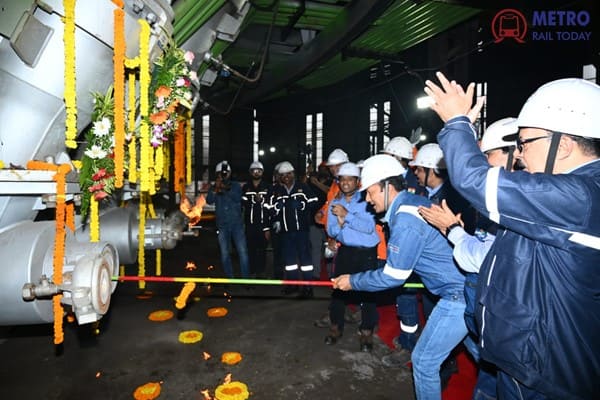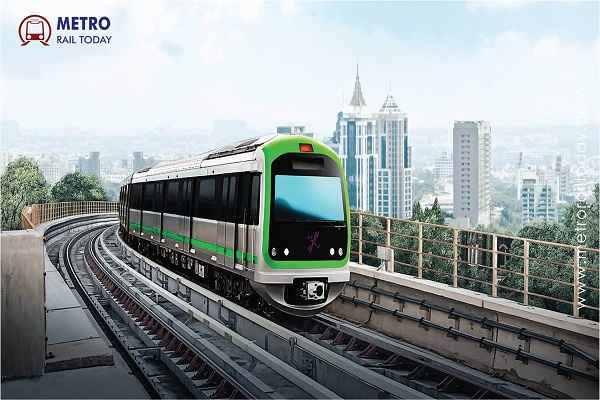 Karnataka approves Feasibility Study for ₹20,649 crore Bengaluru–Tumakuru Metro Extension
Karnataka approves Feasibility Study for ₹20,649 crore Bengaluru–Tumakuru Metro Extension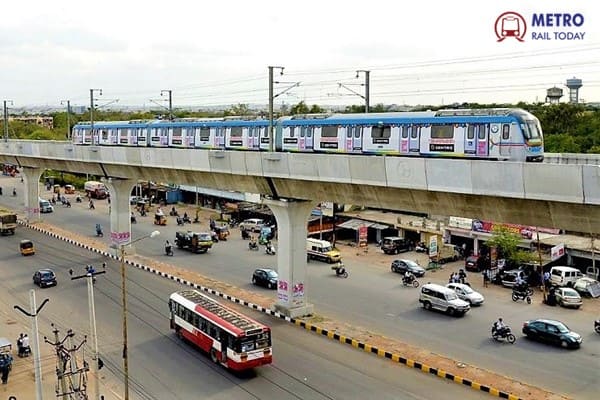 Learning from Exits: Re-evaluating the Public-Private Partnership Model in India's Metro Projects
Learning from Exits: Re-evaluating the Public-Private Partnership Model in India's Metro Projects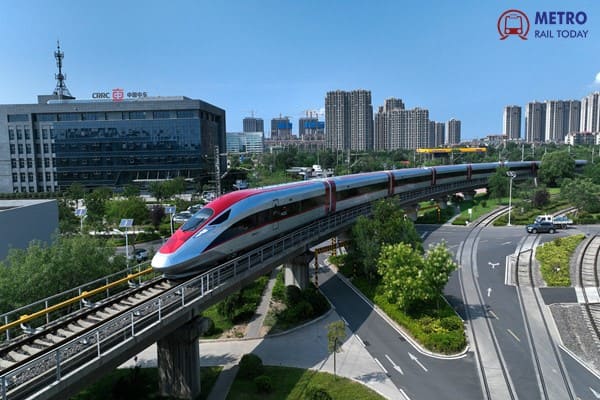 Thailand accelerates Railway Modernization with ‘Quick Win’ Projects and Strategic Expansion Plan
Thailand accelerates Railway Modernization with ‘Quick Win’ Projects and Strategic Expansion Plan Ramkrishna Forgings eyes rail boost with components for India's Bullet Train Project
Ramkrishna Forgings eyes rail boost with components for India's Bullet Train Project The Global Race for Speed: High-Speed Rail as the New Engine of Innovation
The Global Race for Speed: High-Speed Rail as the New Engine of Innovation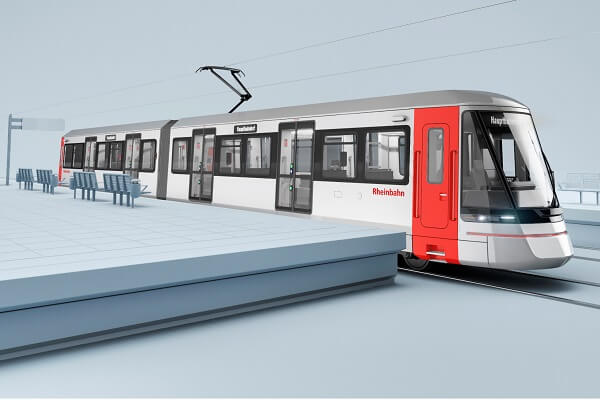 Abu Dhabi unveils Urban Loop and Light Rail Projects to revolutionize sustainable Mobility
Abu Dhabi unveils Urban Loop and Light Rail Projects to revolutionize sustainable Mobility Skoda Group unveils New Metro Train for Sofia, Bulgaria; First delivery set for November 2025
Skoda Group unveils New Metro Train for Sofia, Bulgaria; First delivery set for November 2025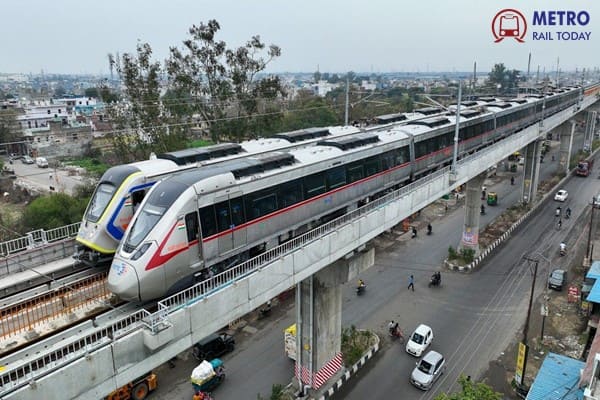 ADB approves ₹2,600 Crore Loan for Delhi–Meerut Namo Bharat RRTS Corridor
ADB approves ₹2,600 Crore Loan for Delhi–Meerut Namo Bharat RRTS Corridor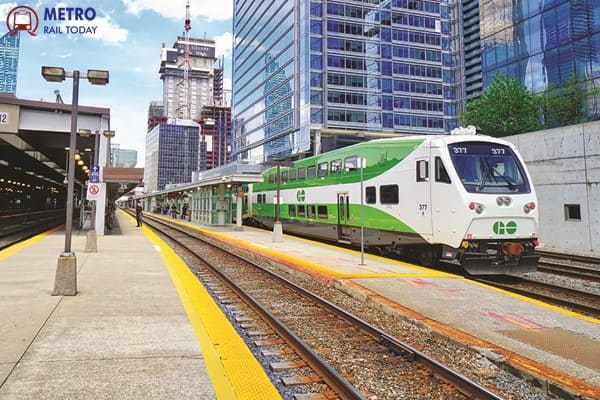 Ireland approves 18.8 km Dublin Metro Link Project after decades-long wait
Ireland approves 18.8 km Dublin Metro Link Project after decades-long wait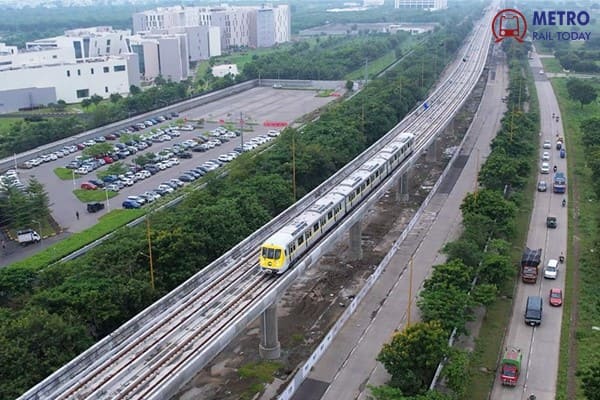 ADB approves $190 Million Loan for Indore Metro Rail Project to boost Urban Mobility
ADB approves $190 Million Loan for Indore Metro Rail Project to boost Urban Mobility
Redevelopment of Indian Railway Stations set to open ₹30,000 crore business opportunities
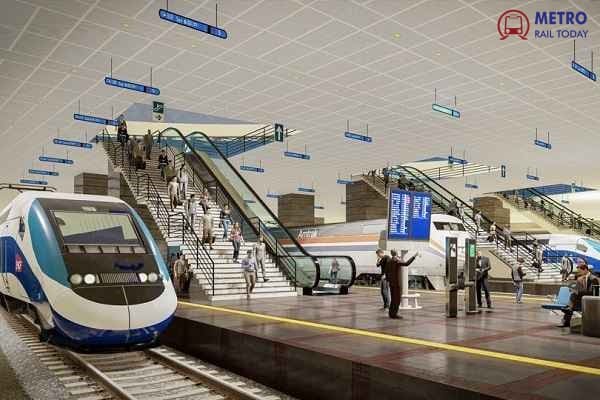
India’s railway station redevelopment is poised to unlock significant business opportunities, with an estimated value of Rs 30,000 crore for engineering, procurement, and construction (EPC) players over the next two years, according to a recent ICRA report. This extensive redevelopment effort forms part of the Amrit Bharat Station Scheme (ABSS), a key initiative aimed at transforming the country’s railway infrastructure and enhancing passenger experience.
With a substantial increase in budgetary allocation for these projects, the railway station redevelopment program is expected to be a major driver of growth for EPC contractors and construction companies in India. Here’s a detailed look into the scope of the project, the anticipated business opportunities, and the financial backing behind this ambitious plan.
Key Highlights of the Railway Station Redevelopment Initiative
The Amrit Bharat Station Scheme (ABSS) is set to redevelop 1,318 railway stations across India, focusing on modernizing infrastructure, improving amenities, and boosting the overall passenger experience. This effort is expected to create substantial demand for construction and engineering services in various sectors such as civil engineering, station infrastructure, real estate development, and urban planning.
According to the ICRA report, the Indian government has significantly increased its funding for railway station redevelopment, allocating over Rs 15,511 crore in the FY2025 Budget Estimates for Indian Railways. This marks a sharp rise from the Rs 2,159 crore allocated in FY2023, reflecting the government’s commitment to transforming the railway sector. The report indicates that these levels of financial support are expected to continue in the medium term, providing a steady stream of opportunities for EPC players.
Shift to EPC Mode Brings Opportunities for Construction Companies
Initially, the Indian government envisioned a large portion of the station redevelopment projects to be executed through the Public-Private Partnership (PPP) model. However, due to challenges such as restrictions on pricing, market risks related to real estate development, and a limited track record of PPP projects in the railway sector, the government shifted the focus to the EPC mode in December 2022. This shift has resulted in increased funding allocation and created a more stable environment for construction companies to participate in the redevelopment efforts.
The EPC mode offers several advantages for contractors, as it reduces market risks and provides greater certainty regarding project timelines and budgets. In the EPC model, the government bears most of the financial risks, which has led to more favorable conditions for construction firms. Vinay Kumar G., ICRA's Sector Head of Corporate Ratings, explained that with the competition in traditional infrastructure sectors like roads and buildings remaining high, the railway station redevelopment initiative presents an attractive opportunity for businesses to diversify and de-risk their operations.
Business Opportunities Estimated at Rs 30,000 Crore
According to the ICRA report, the estimated business opportunities arising from the redevelopment of railway stations in India are worth Rs 30,000 crore over the next two years. The railway station redevelopment projects have witnessed moderate competition in recent years, with discounts typically ranging from 4% to 18%. These figures are comparable to other major railway EPC projects, where median discounts range up to 5%.
Furthermore, given the strong financial standing of Indian Railways as a counterparty, the receivable cycle is expected to be short, offering a significant advantage to construction companies. This is particularly important, as it minimizes the financial strain on contractors and ensures timely payments, akin to the situation with projects managed by the National Highways Authority of India (NHAI).
Progress of Station Redevelopment Projects Across India
The redevelopment of railway stations is already making significant headway. As of now, foundation stones have been laid for 553 stations, and projects worth over Rs 20,000 crore have been awarded. Some of the notable stations that are part of the EPC-mode redevelopment include major hubs like Mumbai's Chhatrapati Shivaji Maharaj Terminal (CSMT), Ahmedabad, Surat, Prayagraj, Bangalore Cantt, Chennai Egmore, and Secunderabad. These stations are set to undergo major infrastructure upgrades, modern amenities, and improvements in passenger facilities.
However, there are still many key stations that have yet to be awarded under the EPC model. 765 stations are currently awaiting awards, and some of the most high-profile stations still pending include New Delhi, Pune, Borivali, Mumbai Central, Thane, and Amritsar. Once these projects are awarded, the scope for business expansion for construction companies will expand even further.
Regional Focus: Stations Set for Redevelopment
Certain regions in India have a higher concentration of stations that are being redeveloped under the ABSS. Uttar Pradesh leads the way with 149 stations slated for redevelopment, followed by Maharashtra with 126 stations, West Bengal with 94 stations, and Gujarat with 87 stations. Other states such as Bihar, Rajasthan, and Madhya Pradesh also have significant numbers of stations in the redevelopment pipeline.
The extensive network of stations being redeveloped spans across India, ensuring that regions across the country will benefit from improved rail infrastructure. As more stations are modernized, the overall connectivity and passenger experience will significantly improve, boosting the economy and fostering regional growth.
Looking Ahead: The Future of Railway Station Redevelopment
With the shift to the EPC mode, the railway station redevelopment program is expected to see accelerated progress in the coming years. The increase in the government’s financial commitment to these projects is a clear indication of its intent to enhance India’s rail infrastructure and passenger facilities.
For engineering, procurement, and construction companies, this presents a once-in-a-lifetime opportunity to participate in some of the country’s largest infrastructure projects. As more stations are redeveloped, these businesses can capitalize on opportunities that will not only contribute to the country's economic growth but also help diversify their portfolios and mitigate risks associated with the competitive construction sector.
The Amrit Bharat Station Scheme (ABSS) is more than just a project to enhance the Indian Railways network; it is a pivotal initiative that is set to transform the country’s infrastructure, improve urban mobility, and generate massive business opportunities worth Rs 30,000 crore in the next two years. As more stations undergo redevelopment, India is poised to witness a transformation in its rail travel experience, with both passengers and construction companies reaping the benefits.
Conclusion
The redevelopment of railway stations under the Amrit Bharat Station Scheme (ABSS) is set to be a game-changer for India's railway infrastructure. With a robust increase in financial allocations and a shift to the EPC mode, the next few years will witness an influx of business opportunities worth Rs 30,000 crore for construction companies. As these projects progress, they will not only modernize India’s railway stations but also provide significant economic benefits, creating jobs, driving regional development, and enhancing the overall travel experience for millions of passengers across the country.







